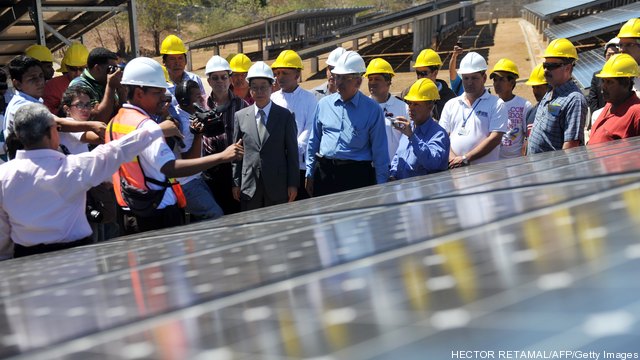
The excitement over solar power, which once attracted billions in private investment and public subsidies, has waned recently, underscoring the limitations of renewable energies and the unchallenged dominance of fossil fuels.
Some of the $75 billion sector’s high profile names have fallen on hard times recently – most notably Suntech Power. The China-based solar panel company rattled the industry when it filed for bankruptcy last week. In its heyday, the stock traded just shy of $90 and had a market capitalization of $16 billion: on Thursday, the last day U.S. markets were open, the shares traded around for 42 cents each. Keep reading →



